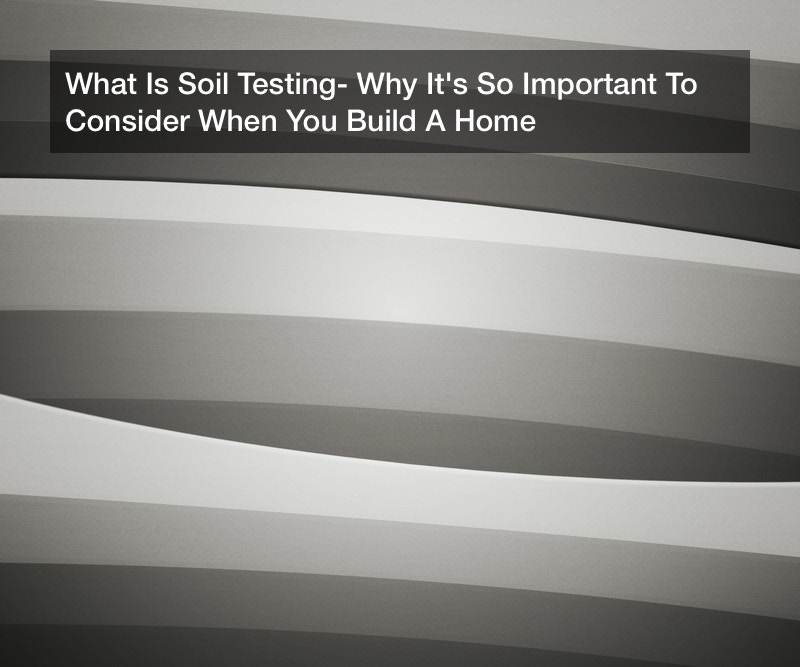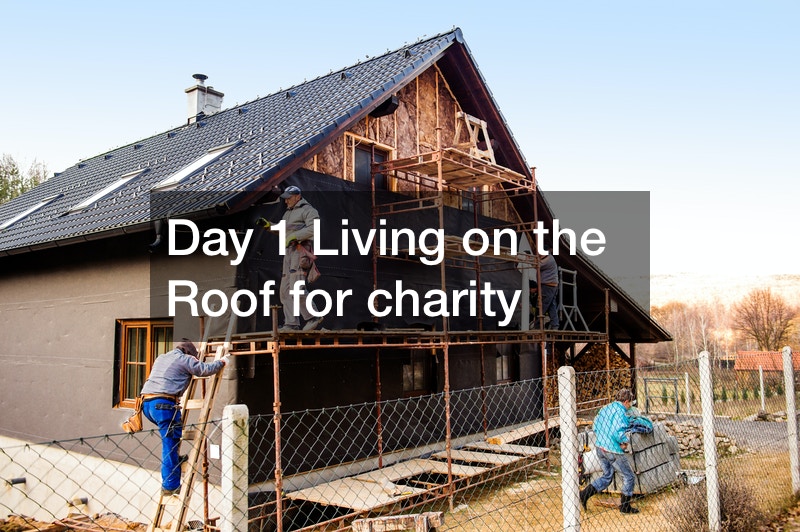
UPDATED 12/18/20
There is something exciting about building a new house. For a number of people, it’s not the first choice. Many believe that a new construction home is more expensive than an older house; and sometimes it is, though this is not always the case. Others have concerns about the time that goes into building a home “from scratch” as opposed to buying a new home. But there are a lot of benefits that lead to people choosing a new construction home. For one thing, you’re able to really make the home your own. Yes, there are models to choose from; but things can be chosen to alter those models, depending on how they coincide with homeowner’s preferences. Building your own home also allows you to invest in something that you really believe in, ultimately putting your stamp on something that is uniquely yours. For some homeowners, this is a real necessity. For others, the main benefit of building a new construction home is that it’s simply easier than trying to find a home in the area that you want. Some locations are more rural than others; and even in some more suburban locations, a home that has the space and amenities that you’re looking for is hard to find. But there is much more to building a home than finding the right model and location.
When building a new construction home, you are literally building a house from the ground up. A lot goes into that process, and there’s a reason why new residential construction spending is estimated to be around $586 billion in 2023.

For new homeowners, what matters most is the personalization of the design. Many perceive it as the achievement of their ultimate goals. After all, they not only purchased a property, but more importantly, it’s their own property that they could customize according to their wants and needs. This is also why along with residential construction projects, many also look into new swimming pool construction services. New homeowners recognize the value of a pool in their backyard. It’s both an aesthetic addition to the place, and also literally increases the property value. Plus, it significantly boosts the level of enjoyment you can have in your own property, and not to mention, provide more opportunities to meet fitness goals.
If you want to know how to find new building projects with reliable contractor services, you can either seek referrals from people you know, or do your research online. You need to ensure that you will get professionals for the job, especially because there are strict OSHA standards for the construction industry that must be adhered to. An experienced, quality company will surely implement the proper safety protocol in construction site, making your property’s development go faster and smoother, safely.
The fact is that there is no use in beginning a new home, or planning a new home, if you don’t know that the ground you’re building on is stable and ready. This is why many recommend a new house construction checklist for soil, which will of course involve soil testing. Many homeowners, when planning on the expenses that will come with building a new home, don’t understand that soil testing is part of building a home. There are many different aspects that play into choosing a lot, and soil testing is perhaps one of the most important parts. With that being said, let’s look into how soil testing works, and why it’s an important part of any new house construction checklist.
Why Should I Perform Soil Testing For My Home?

You may be wondering why soil testing should be a part of your new house construction checklist; and that’s a valid question. At first, soil testing may not seem nearly as important as choosing the types of rooms you need in your home. But you can’t get anywhere without soil testing, in truth. Soil testing is done in order to determine the type of soil that a house may be built upon. Before you build on your lot, soil testing is necessary because different types of soil will respond to building in different manners. For example, if soil is loosely packed, it will inevitably respond differently than soil that is tightly packed; and that’s not to say that this type of soil can’t be built upon. But rather, that certain steps must be taken to counteract the way one type of soil will react versus the other. And for that matter, some types of houses are made for loosely packed soil while others are not. If soil is loose, full of clay, or easily compressed, it will require extra foundation to stabilize the home. This could be accomplished through wider and deeper foundations, or through the replacement of bad soil.
What happens if loose soil isn’t properly handled? Well, the consequences can be quite devastating, and completely invalidate what you’re attempting when building a new home. The soil will expand and contract, which means that your foundation will begin to crack or crumble in response. One thing that you should consider as well is that, as expensive as it may seem to add soil testing to your new house construction checklist, you should understand that it would actually be potentially more expensive to skip it. If your home’s foundation begins to crumble or break down after the soil changes, you will need to pay for repairs down the road. These repairs would be far more expensive than what you would pay to have the soil tested. However, you should understand ahead of time that soil testing is not something that you can handle yourself. It’s important to work with professionals when handling this issue.
Who Should I Hire To Work On Soil Testing?

Soil testing is specifically handled by professional soil engineers. These soil engineers will be responsible for not only testing the soil but bringing along the geotechnical testing equipment necessary to handle the tests. In fact, soil engineers are often referred to as geotechnical engineers, and they are also required to have degrees in civil engineering. They must both be certified within their own states and passed the National Council of Examiners for Engineering Fundamental of Engineering Exam. The engineer that you hire will ideally have on the job experience as well, which will make it easier for them to fulfill this part of your new house construction checklist. Ideally, you may want to work with a local directory or ask for referrals from your construction company in order to determine who specifically you’re going to choose to work with. There’s ultimately a lot of importance to your ultimate decision regarding which soil engineer you’re going to work with.
But what does a soil engineer actually do? There is much more to being a soil engineer than simply acting as a geotechnical equipment specialist. The job is very physical, and there is some degree of risk that comes with the job. This is because soil engineers start out with boring holes into the ground to collect soil samples. They then test the samples in order to determine the quality of the soil. This can be done at any point in the construction process. Therefore, if you add soil testing to your new house construction checklist late, you can still go through the process and ensure that the soil is the right quality. If it’s not and you’ve already started construction, you can compensate for changes made. With that being said, you should try to get this done as quickly as possible; soil can change throughout the construction process, and afterward, but you need to have an idea of what you’re doing ahead of time. Another thing to consider, of course, is having soil tested later on, should your home be showing foundation problems down the road.
Soil engineers also make recommendations following the tests. They can advise homeowners on how to overcome soil issues. The soil may need to be graded. Soil drainage and addition foundation are other options that come well-recommended. They’ll ultimately give a report that will be handed to the homeowner and the construction team responsible for handling the task.
What Are Potential Problems That Can Occur Within Soil?

There are a lot of problems that can come with soil testing after it’s added to a new house construction checklist. It’s an important part of a potential homeowner’s final choice of whether or not to invest in real estate. But what exactly is a soil engineer looking for in soil? Of course, whether or not the soil is strong is important to consider. But what does that mean? Strong soil does not expand or contract easily and is dense. Dense soil doesn’t settle after a home is constructed, and is going to be packed together in a way that supports a house properly. Weak soil, on the other hand, is soil that expands or contracts by 10% or more due to moisture levels. In other words, it’s more easily affected by the degree of moisture that is in the soil, which can vary wildly depending on weather conditions as well as other factors. However, the weakness or strength of the soil is not the only factor that can be determined, or should be considered, through soil testing.
There are also different toxins and contaminants within soil that can affect its suitability. These include copper, arsenic, lead, cadmium, zinc, and barium. The issue there is that these can be harmful to human beings, and this is a problem much greater than weak soil. Toxic soil is dangerous to the health of those living within the house, and nobody should build on it. This should be a major consideration, in particular, for those who want to build a house that is meant to be rented out to others. Safety should be paramount with any home, but there is a degree of liability that landlords or future landlords should be especially aware of. These types of issues will not only affect them but those living within their homes in the future. Another problem that they need to consider is how the quality of the soil will affect their ability to sell their home. There can certainly be a risk that comes with building on soil that is weak, and certainly soil that is toxic, for construction workers as well. This is why it might be a good idea to consult with a premises liability injury attorney before continuing to build on weaker soil, even after it’s been supported. You can’t trust that there won’t still be some risk of injury during the building process, which you can potentially be held liable for even after you’ve made changes as advised by a soil engineer.
Should I Test The Soil Before Buying The Land?

Of course, soil testing isn’t only a part of a new house construction checklist. It can, at times, be done before you buy land in the first place. This needs to be made clear to the land owners before you place your bid on the site. Essentially, this would be made a part of your purchase agreement when you make an offer on the land. This will essentially make it safe for you to decline the property if it’s determined to be unsafe to build on. You won’t have to face any penalties or other types of repercussions if this type of agreement is made.
With that being said, if you do choose to have a soil test done before you begin building, it can potentially be more expensive than it would be if you chose to wait. This is why some people decide not to have soil testing be a part of their new house construction checklists. While a soil test that is done after property is sold could cost around a few hundred dollars, a soil test done before a home is sold may cost thousands of dollars. Furthermore, this money will come out of your personal finances, and you won’t be sure about whether or not you’ll end up building a home on this property. On the other hand, if you have the soil tested after a property is sold, you’ll know that it’s a part of your overall construction costs. Of course, the possibility that comes up when you wait to test is that you could very well end up with a property that has weak or toxic soil. And what will you do from there?
There are a lot of problems that can be revealed through a soil test. But it’s much better to have the test ahead of time, versus waiting to see if you can do it later. Yes, it might be tempting to bury your head in the sand and worry about this part of your new house construction checklist after your home is built. But if you worry about it later, you may end up having to pay for repairs and improvements that are much more expensive than simply handling the tests ahead of time. Be proactive, and you’ll have a much stronger home!
Related:
building construction test, geo soil testing, geotech report cost, geotechnical study cost, soil report companies near me, soil report for construction, soil report for foundation, soil study for construction, soil test for building, soil test report for construction, soil testing for construction pdf, soil testing for foundation near me, who does soil testing for construction, a civil engineer is testing the reliability, building on class p soil, buying land soil test, civil engineering testing procedures, cost of geotechnical testing, engineered fill price, field tests on soil, how much is a geotech report.


